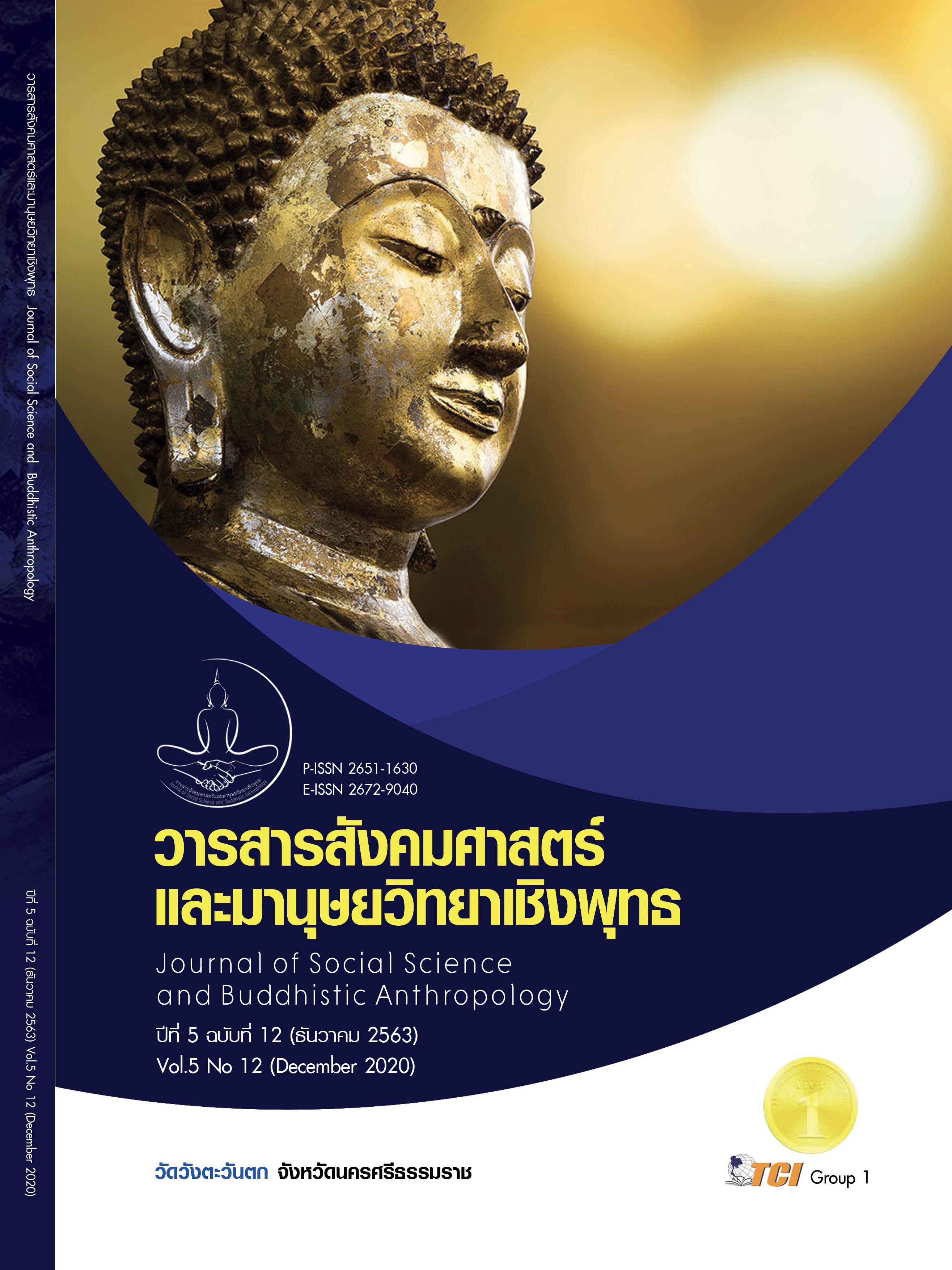THE PRINCIPLE OF YONISOMANASIKÀRA APPLY TO WEIGHING OF EVIDENCE IN CRIMINAL CASE
Keywords:
Yonisomanasikarn, Weighing Evidence, Independent JudgmentAbstract
The Objectives of this research article were to 1) study in Buddhist Scriptures, analyze the main concepts of Yonisomanasikarn on weighing evidence, 2) study and research problem concepts and legal principles concerning weighing evidence in criminal cases under current Thai law, and 3) the main idea of Yonisomanasikarn is proposed to be apply to improve and amend laws, regulations, requirements or recommendations for the weighing of evidence in criminal cases more clearly. This research was a qualitative research use study of documents and legal texts. The research results found that: 1) Yonisomanasikarn principles is a cognitive process, knowing the idea or the method of wisdom include: 1.1) investigation method factor, 1.2) methods to distinguish components, 1.3) ordinary methods, 1.4) noble Truths or problem solving methods, 1.5) attitudes, 1.6) ways to see you Penalty and exit, 1.7) how to know the real value, 1.8) moral stimulation, 1.9) living in the present and 1.10) the method. 2) The relevant laws are: the principle of weighing evidence in criminal cases is the judgment of weighing evidence to assess the reliability of evidence. According to Section 227 of the Criminal Procedure Code, it is a law issue that has a wide range of discretion without boundaries. The court will exercise its independent discretion. Or the law provided to entrust more people than the law. And 3) apply the principles of Yonisomanasikarn by adding the Criminal Procedure Code Act 1934, Section 227 should clearly define the rules for weighing procedures. With the separation of evidence determine the type of weight, evidence that is reliable and evidence that is unreliable, or evidence that is of low credibility. Solid evidence versus unstable evidence And evidence of proven value versus evidence of no proven value.
References
จรัล เตชะวิจิตรา. (2556). กระบวนยุติธรรมในการพิจารณาคดีอาญาวิธีพุทธ. กรุงเทพมหานคร: สถาบันพัฒนาข้าราชการฝ่ายตุลาการศาลยุติธรรม สำนักงานยุติธรรม.
ณรงค์ ใจหาญ. (2562). การปฏิรูปการศึกษานิติศาสตร์. เรียกใช้เมื่อ 1 สิงหาคม 2562 จาก https://www.siamrath.co.th/n/3797
พร้อมพรรณ ชลถาวรพงศ์. (2560). การรับฟังพยานหลักฐานที่ได้มาโดยมิชอบตามประมวลกฎหมายวิธีพิจารณาความอาญา. ใน วิทยานิพนธ์นิติศาสตรมหาบัณฑิต สาขานิติศาสตร์. จุฬาลงกรณ์มหาวิทยาลัย.
พระพรหมคุณาภรณ์ (ป.อ. ปยุตฺโต). (2555). พจนานุกรมพุทธศาสตร์ ฉบับประมวลธรรม. (พิมพ์ครั้งที่ 23). กรุงเทพมหานคร: สำนักพิมพ์ผลิธัมม์.
พระราชบัญญัติให้ใช้ประมวลกฎหมายอาญา พุทธศักราช 2477. (2477). ราชกิจจานุเบกษา เล่มที่ 52 (7 มีนาคม 2477).
พระสมนึก จรโณ. (2561). โยนิโสมนสิการ: หลักการคิดที่เหมาะสมกับคนไทยในยุค 4.0. ใน การสัมมนาวิชาการระดับชาติ มจร. ครั้งที่ 4. มหาวิทยาลัยมหาจุฬาลงกรณ์ราชวิทยาลัย.
ภูมิรินทร์ บุตรอินทร์. (2562). การใช้เหตุผลทางนิติศาสตร์. (พิมพ์ครั้งที่ 3). กรุงเทพมหานคร: มหาวิทยาลัยธรรมศาสตร์.
รัฐธรรมนูญแห่งราชอาณาจักรไทย พุทธศักราช 2560. (2560). ราชกิจจานุเบกษา เล่ม 134 ตอนที่ 40 ก (6 เมษายน พ.ศ. 2560).
รัตติยา ทาทอง. (2555). หลักความเป็นอิสระในการชั่งน้ำหนักพยานหลักฐาน: วิเคราะห์การกำหนดมาตรฐานการชั่งน้ำหนักพยานตามประมวลกฎหมายวิธีพิจารณาความอาญา พ.ศ.2477 มาตรา 227/1. ใน วิทยานิพนธ์นิติศาสตรมหาบัณฑิต สาขานิติศาสตร์. มหาวยิทยาลัยธุรกิจบัณฑิต.
Kitboon, A. (2015). Forensic Evidence on Social Justice. Bangkok: Ministry of Justice.
Sinloyma. P. (2017). Solving Crime Problems with Forensic Science. Bangkok: Office of Justice Affairs.









